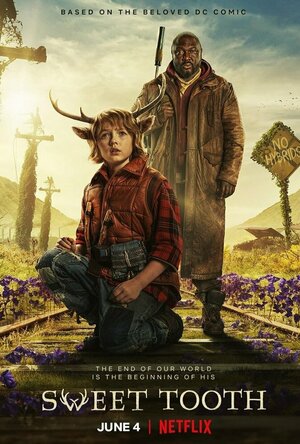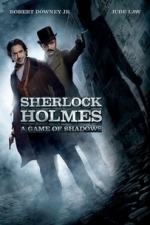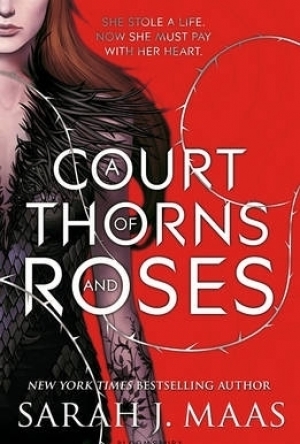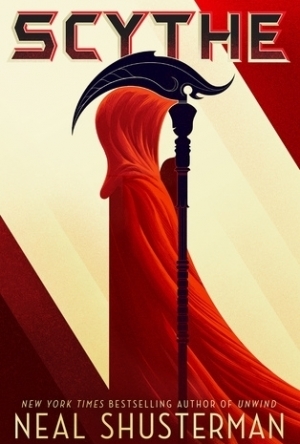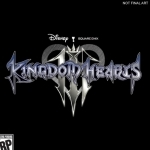Search
Search results
Charlie Cobra Reviews (1840 KP) rated Sweet Tooth in TV
Jun 23, 2021
Story/Plot (2 more)
Actors/acting
Music/Soundtrack
For some the rating being TV-14 (1 more)
Some of the CGI
A Lot of Heart and A Great Story, That Lives Up To The Hype
https://youtu.be/3vw5Un4qmU8
Sweet Tooth is an awesome show. I was pretty excited for this show when I saw the trailer and what it was going to be about. That's because shows and cartoons that have to do with anthropomorphic animal people have a special place in my heart. I think it's because of my love of Teenage Mutant Ninja Turtles growing up and also because of all the Disney cartoons with talking animals I watched as a kid. Anyways, I really dug this show and thought that it was excellent. I though the casting was pretty spot on for what they were trying to go with and there was some really good acting in this series. I for one, couldn't really see Will Forte as a father before this movie, but he did such a great job as Pubba/Richard Fox Gus's father. I also liked Adeel Akhtar who played Dr. Singh. His performance was really good and I liked his character more than I thought I would. He brought a lot of emotion to his character and his facial expressions really said a lot without having to say it in words. The cinematography was excellent, and there were a lot of this epic shots. Some of the ones I remember the most are these ones from the beginning of episodes showing the scenery like the forest and mountains and others of the cities and just ones where they were really zoomed out showing how big the world is. The plot for me was very interesting because of the whole mystery to it and it being two-fold with the mystery of the virus and then the one of the hybrids. There was the whole speculation on whether the two were related or not and what they had to do with each other if anything. I also liked how even though Gus is the main character, the plot turned into three main storylines following the characters of Gus, Dr. Singh and then Aimee Eden/Dania Ramirez. Aimee Eden is a lady who takes in abandoned hybrids to her sanctuary/orphanage that she creates. I love Dania Ramirez as an actress and you've probably seen her in the shows and movies she's been in like one of my all time favorites, the show Heroes and movies like X-Men: Last Stand, Premium Rush and American Reunion. The soundtrack for the show was really good and very fitting in setting the mood and there were a couple of good songs that stuck out for me like the songs "Dirty Paws" by Of Monsters and Men and "Dancing in the Moonlight" by King Harvest. It seems like the show has a few different themes and they are pretty powerful and universal. One of them is how society shows prejudice, hatred, and fear to those who are different. The series has a generally good atmosphere and mood but I like how the vibe changes in key moments and they do a good job of setting tension in certain spots like when the man approaches the fence near Gus' home in the first episode. The special effects and CGI were decent but nothing spectacular in my opinion from what I remember. There were a couple that could have been better but nothing terribly horrible. The dialogue seemed pretty natural and nothing that stuck out as unusual or something that seemed better on paper or unnatural being said for most of the characters. It was rated TV-14 so for a show that had some mature themes it kind of shies away from the more extreme actions of the plot which I know some people will criticize but I thought it had enough things going on action wise and didn't need to be overly violent or graphic. That being said, I've never read the comic and don't know how it compares to the source material. I thought the editing was rather good and the scenes transitioned well. I especially liked the narration that comes out in the episodes which took me until the end of the season to find out it was actually the voice of Josh Brolin. The pacing was good as well and I liked the way this show places the flashbacks and scenes of the past while still going forward plot wise in the story. I have to say that my favorite character so far is probably the girl called Bear. She's really interesting and has a really cool introduction to the show when she appears. Well that's going to do it for this review, Sweet Tooth is a an awesome show and I give it a 9/10 and it definitely gets my "Must See Seal of Approval". It's on Netflix, so if you haven't seen it yet, you need to give this show a watch.
If you want to read the spoiler review section for my review, check it out on my website by clicking on the link below.
https://cobracharliecr.wixsite.com/charliecobrareviews/post/sweet-tooth-tv-series-review-9-10-a-lot-of-heart-and-a-great-story-that-lives-up-to-the-hype
Sweet Tooth is an awesome show. I was pretty excited for this show when I saw the trailer and what it was going to be about. That's because shows and cartoons that have to do with anthropomorphic animal people have a special place in my heart. I think it's because of my love of Teenage Mutant Ninja Turtles growing up and also because of all the Disney cartoons with talking animals I watched as a kid. Anyways, I really dug this show and thought that it was excellent. I though the casting was pretty spot on for what they were trying to go with and there was some really good acting in this series. I for one, couldn't really see Will Forte as a father before this movie, but he did such a great job as Pubba/Richard Fox Gus's father. I also liked Adeel Akhtar who played Dr. Singh. His performance was really good and I liked his character more than I thought I would. He brought a lot of emotion to his character and his facial expressions really said a lot without having to say it in words. The cinematography was excellent, and there were a lot of this epic shots. Some of the ones I remember the most are these ones from the beginning of episodes showing the scenery like the forest and mountains and others of the cities and just ones where they were really zoomed out showing how big the world is. The plot for me was very interesting because of the whole mystery to it and it being two-fold with the mystery of the virus and then the one of the hybrids. There was the whole speculation on whether the two were related or not and what they had to do with each other if anything. I also liked how even though Gus is the main character, the plot turned into three main storylines following the characters of Gus, Dr. Singh and then Aimee Eden/Dania Ramirez. Aimee Eden is a lady who takes in abandoned hybrids to her sanctuary/orphanage that she creates. I love Dania Ramirez as an actress and you've probably seen her in the shows and movies she's been in like one of my all time favorites, the show Heroes and movies like X-Men: Last Stand, Premium Rush and American Reunion. The soundtrack for the show was really good and very fitting in setting the mood and there were a couple of good songs that stuck out for me like the songs "Dirty Paws" by Of Monsters and Men and "Dancing in the Moonlight" by King Harvest. It seems like the show has a few different themes and they are pretty powerful and universal. One of them is how society shows prejudice, hatred, and fear to those who are different. The series has a generally good atmosphere and mood but I like how the vibe changes in key moments and they do a good job of setting tension in certain spots like when the man approaches the fence near Gus' home in the first episode. The special effects and CGI were decent but nothing spectacular in my opinion from what I remember. There were a couple that could have been better but nothing terribly horrible. The dialogue seemed pretty natural and nothing that stuck out as unusual or something that seemed better on paper or unnatural being said for most of the characters. It was rated TV-14 so for a show that had some mature themes it kind of shies away from the more extreme actions of the plot which I know some people will criticize but I thought it had enough things going on action wise and didn't need to be overly violent or graphic. That being said, I've never read the comic and don't know how it compares to the source material. I thought the editing was rather good and the scenes transitioned well. I especially liked the narration that comes out in the episodes which took me until the end of the season to find out it was actually the voice of Josh Brolin. The pacing was good as well and I liked the way this show places the flashbacks and scenes of the past while still going forward plot wise in the story. I have to say that my favorite character so far is probably the girl called Bear. She's really interesting and has a really cool introduction to the show when she appears. Well that's going to do it for this review, Sweet Tooth is a an awesome show and I give it a 9/10 and it definitely gets my "Must See Seal of Approval". It's on Netflix, so if you haven't seen it yet, you need to give this show a watch.
If you want to read the spoiler review section for my review, check it out on my website by clicking on the link below.
https://cobracharliecr.wixsite.com/charliecobrareviews/post/sweet-tooth-tv-series-review-9-10-a-lot-of-heart-and-a-great-story-that-lives-up-to-the-hype
Sophia (Bookwyrming Thoughts) (530 KP) rated The Second Siege (The Tapestry, #2) in Books
Jan 23, 2020
Original Review posted on <a title="The Second Siege by Henry H. Neff" href="http://bookwyrming-thoughts.blogspot.com/2013/05/review-the-second-siege-by-henry-h-neff.html">Bookwyrming Thoughts</a>
Original Rating: 3.5 out of 5 Owls
Note: Formatting is lost due to copy and paste
In the second book to The Tapestry series, Astaroth has already been released from his confinement and is causing trouble in the outside world with his allies. Max McDaniels and his roommate David Menlo are traveling to different worlds on a quest to acquire the dangerous Book of Thoth before Astaroth gets to it first.
I'm sorry if I can't help but compare the series to Harry Potter (actually, I can't help but compare a lot of books to another book/series...). Both series are just so... similar in so many ways. It may sound ironic, but in my humble opinion, Astaroth isn't that... villainy. I mean, sure, he's cunning and evil when necessary, but I'm pretty sure that if Voldy and Astaroth had a face off, Voldy would probably crush him. Big time. Even if he's noseless. Basically because Voldy is evil 24/7.
<img src="http://i287.photobucket.com/albums/ll152/Contele_Draqula/VoldemortandDeathEaters.jpg"; width="200" height="143" />
On the other hand, Astaroth's "minions" are well... completely the opposite of the Death Eaters. The Death Eaters are pretty loyal, but there's always these little loose knots here and there when it comes to loyalty. Apparently, Astaroth's minions are too loyal to the demon, that there are practically no loose ends at all. One big happy family in taking over the world? Possibly... but don't take my word for granted. I may be wrong for all I know and all of his minions will soon overthrow him as leader of Malevolency.
In a nutshell, you can say I'm sadly disappointed that Astaroth just doesn't seem like a villain at certain times. I don't know. Maybe he'll be more evil later in the series, but for now, I think I'll categorize him a bit as Mr. Nice Guy. I'll nominate him as Dr. Evil II when he has more of the muahaha added in (okay, not exactly muahaha, but closer).
<img src="http://4.bp.blogspot.com/_OjrbRW6e1VE/THP3sett2tI/AAAAAAAAFBw/rsQC8kBELBw/s200/Dr_Evil.jpg"; />
So, the ending. Er, not exactly. Kind of a happy-sad ending, but not exactly an ending that will make me emotional that I'll need a Kleenex in hand and hide someplace so no one sees me crying, because if I get seen crying, it'll be as embarrassing as saying something in an awkward silence.. But I'm pretty glad that Max and his father saw someone they deeply cared for at least one more time after so many years. It's also not an ending where there's this lovely cliffhanger that keeps you at the edge of the seat, eager to read the next book.
As much as I hate cliffhangers, I just feel that there needs to be some sort of cliff waiting to catch more "victims" at the end when it comes to a series (maybe I'm so used to that frame of mind...), which I find missing in The Second Siege. Though hopefully I'm just missing that cliffhanger and just need to dig deeper...
Original Rating: 3.5 out of 5 Owls
Note: Formatting is lost due to copy and paste
In the second book to The Tapestry series, Astaroth has already been released from his confinement and is causing trouble in the outside world with his allies. Max McDaniels and his roommate David Menlo are traveling to different worlds on a quest to acquire the dangerous Book of Thoth before Astaroth gets to it first.
I'm sorry if I can't help but compare the series to Harry Potter (actually, I can't help but compare a lot of books to another book/series...). Both series are just so... similar in so many ways. It may sound ironic, but in my humble opinion, Astaroth isn't that... villainy. I mean, sure, he's cunning and evil when necessary, but I'm pretty sure that if Voldy and Astaroth had a face off, Voldy would probably crush him. Big time. Even if he's noseless. Basically because Voldy is evil 24/7.
<img src="http://i287.photobucket.com/albums/ll152/Contele_Draqula/VoldemortandDeathEaters.jpg"; width="200" height="143" />
On the other hand, Astaroth's "minions" are well... completely the opposite of the Death Eaters. The Death Eaters are pretty loyal, but there's always these little loose knots here and there when it comes to loyalty. Apparently, Astaroth's minions are too loyal to the demon, that there are practically no loose ends at all. One big happy family in taking over the world? Possibly... but don't take my word for granted. I may be wrong for all I know and all of his minions will soon overthrow him as leader of Malevolency.
In a nutshell, you can say I'm sadly disappointed that Astaroth just doesn't seem like a villain at certain times. I don't know. Maybe he'll be more evil later in the series, but for now, I think I'll categorize him a bit as Mr. Nice Guy. I'll nominate him as Dr. Evil II when he has more of the muahaha added in (okay, not exactly muahaha, but closer).
<img src="http://4.bp.blogspot.com/_OjrbRW6e1VE/THP3sett2tI/AAAAAAAAFBw/rsQC8kBELBw/s200/Dr_Evil.jpg"; />
So, the ending. Er, not exactly. Kind of a happy-sad ending, but not exactly an ending that will make me emotional that I'll need a Kleenex in hand and hide someplace so no one sees me crying, because if I get seen crying, it'll be as embarrassing as saying something in an awkward silence.. But I'm pretty glad that Max and his father saw someone they deeply cared for at least one more time after so many years. It's also not an ending where there's this lovely cliffhanger that keeps you at the edge of the seat, eager to read the next book.
As much as I hate cliffhangers, I just feel that there needs to be some sort of cliff waiting to catch more "victims" at the end when it comes to a series (maybe I'm so used to that frame of mind...), which I find missing in The Second Siege. Though hopefully I'm just missing that cliffhanger and just need to dig deeper...

1Mark Golf Scoring
Sports and Entertainment
App
1Mark is what you have been waiting for in golf. Finally get rewarded for your achievements with...
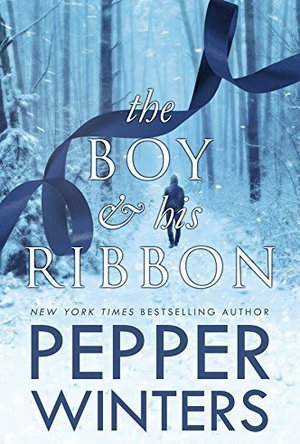
The Boy and His Ribbon
Book
From New York Times Bestseller, Pepper Winters, comes one of her best tales yet... "What do you...

Pinball HD (iPhone) Classic Arcade,Zen,Space Games
Games and Sports
App
This unique table features pinball bumpers and targets, plus a color monitor where you can take on a...
Gareth von Kallenbach (980 KP) rated Sherlock Holmes: A Game of Shadows (2011) in Movies
Aug 7, 2019
Robert Downey, Jr. and Jude Law return once again as Sherlock Holmes and Dr. Watson in “Sherlock Holmes: A Game of Shadows“. In this installment, a series of bombings across Europe has positioned the nations of the world on the brink of war. Holmes is convinced that there is a criminal mastermind behind the numerous, seemingly unrelated events and he believes it is renowned scholar James Moriarty (Jared Harris).
Watson, well-accustomed to Holmes’ eccentric and erratic behavior, is dubious of Holmes claims. Besides, Watson has his upcoming wedding to focus on, and only deigns to spend time with Holmes at the promise of a stag party at an upscale gentlemen’s club. While the bachelor party includes an entertaining Stephen Fry playing Holmes’ brother, Mycroft, Holmes has ulterior motives for taking Watson to this particular club. Early in the film, Holmes had cleverly intercepted a message from Irene Adler (Amy McAdams), that led him to a fortuneteller named Madam Simza Heron (Noomi Rapace), a woman Holmes believes has been targeted for death by Moriarty, who just happens to be working at the gentlemen’s club.
Eventually a meeting with Moriarty is arranged for Holmes. The two intellectuals spar with one another verbally in a civilized manner, with menacing undertones. Holmes isn’t able to convince Moriarty that Watson is no longer a partner in any of his endeavors and, Holmes is forced to take drastic measures to ensure the doctor and his new wife stay out of harm’s way. From Paris to Germany and other European locales, Holmes, Watson, and Simza and her gypsy friends race against time to uncover the diabolical plot that Moriarty has set for their demise in his quest to drive nations to war.
The film is an absolute delight and is a rare sequel that is even better than the previous film in the series. Robert Downey, Jr. and Jude Law have amazing chemistry with one another and their timing is absolutely perfect. The duo deftly mix action and comedy as well as the serious subject matter of the plot line and are utterly captivating and enjoyable to watch every step of the way. Rapace continues to impress in a much softer character than her Lisbeth Salandar role in the “Girl with the Dragon Tattoo” Swedish trilogy. and is poised to become one of Hollywood’s new leading ladies.
Having become familiar with Harris’ work on the series Mad Men, I was delighted to see him expertly portray such a complex character as Moriarty: a gentleman scholar of impeccable upbringing and education who is also a twisted and evil genius. Harris plays Moriarty perfectly and never lets you forget the dark and sinister side of him without ever becoming a campy or cartoony vaudeville villain.
Guy Ritchie returns as director and lets his stars carry the film. The action has been ramped up this time around with some spectacular action sequences but the action never overshadows the character-driven story. The film was well-paced and an absolute thrill ride from beginning to end mixing fantastic action and some great humor for a very winning combination that is not to be missed. I am already looking forward to future outings of Holmes and Watson on the big screen as this was a truly enjoyable experience that shows you how action comedies are supposed to be made.
Watson, well-accustomed to Holmes’ eccentric and erratic behavior, is dubious of Holmes claims. Besides, Watson has his upcoming wedding to focus on, and only deigns to spend time with Holmes at the promise of a stag party at an upscale gentlemen’s club. While the bachelor party includes an entertaining Stephen Fry playing Holmes’ brother, Mycroft, Holmes has ulterior motives for taking Watson to this particular club. Early in the film, Holmes had cleverly intercepted a message from Irene Adler (Amy McAdams), that led him to a fortuneteller named Madam Simza Heron (Noomi Rapace), a woman Holmes believes has been targeted for death by Moriarty, who just happens to be working at the gentlemen’s club.
Eventually a meeting with Moriarty is arranged for Holmes. The two intellectuals spar with one another verbally in a civilized manner, with menacing undertones. Holmes isn’t able to convince Moriarty that Watson is no longer a partner in any of his endeavors and, Holmes is forced to take drastic measures to ensure the doctor and his new wife stay out of harm’s way. From Paris to Germany and other European locales, Holmes, Watson, and Simza and her gypsy friends race against time to uncover the diabolical plot that Moriarty has set for their demise in his quest to drive nations to war.
The film is an absolute delight and is a rare sequel that is even better than the previous film in the series. Robert Downey, Jr. and Jude Law have amazing chemistry with one another and their timing is absolutely perfect. The duo deftly mix action and comedy as well as the serious subject matter of the plot line and are utterly captivating and enjoyable to watch every step of the way. Rapace continues to impress in a much softer character than her Lisbeth Salandar role in the “Girl with the Dragon Tattoo” Swedish trilogy. and is poised to become one of Hollywood’s new leading ladies.
Having become familiar with Harris’ work on the series Mad Men, I was delighted to see him expertly portray such a complex character as Moriarty: a gentleman scholar of impeccable upbringing and education who is also a twisted and evil genius. Harris plays Moriarty perfectly and never lets you forget the dark and sinister side of him without ever becoming a campy or cartoony vaudeville villain.
Guy Ritchie returns as director and lets his stars carry the film. The action has been ramped up this time around with some spectacular action sequences but the action never overshadows the character-driven story. The film was well-paced and an absolute thrill ride from beginning to end mixing fantastic action and some great humor for a very winning combination that is not to be missed. I am already looking forward to future outings of Holmes and Watson on the big screen as this was a truly enjoyable experience that shows you how action comedies are supposed to be made.
Nadia (1 KP) rated A Court of Thorns and Roses in Books
Aug 16, 2018
Beautiful characters (1 more)
Interesting fantasy world
Falling back in love with fairies.
When I first picked up this book, I was expecting it to be just another book about a teenage girl falling in love with some irresistible fairie. Although I didn't expect much as I haven't really enjoyed many YA novels about fairies in a few years, I fell in love myself with the protagonist, Feyre, and many of the other characters.
Feyre's character reminds me of Katniss Everdeen from the Hunger Games. She is strong and independent with clear motivations and her progression towards a softer, more gentle character throughout the book never takes away that strength. My favourite thing about her character is that she finds love but she never stops relying on herself.
Leading on from that, the main romance in this book is very believable and real, developing over time, with Maas presenting Feyre and Tamlin as equals, helping each other to grow. This is a refreshing change from many YA romances, where a man swoops in to save a damaged woman from all of her problems. Plus, there are many non-romantic relationships that really lighten up the novel. An example of this is Feyre's friendship with Lucien which, although purely platonic, is just as inspiring and lovely as any romance.
My only criticism of this novel is that it could have been longer. I really enjoyed the final part of the story, where Feyre goes through a lot for her relationship, because it really showcases her strength. However, it felt slightly rushed at some points, considering it is meant to take place over around 3 months. The final confrontation near then end seemed to be very quick and I can see how this makes sense with the story but I still would have liked to have a bit more to read.
I would definitely recommend this book to anyone who likes YA fantasy with romance, politics and magic. I can't wait to read the rest of the series!
Feyre's character reminds me of Katniss Everdeen from the Hunger Games. She is strong and independent with clear motivations and her progression towards a softer, more gentle character throughout the book never takes away that strength. My favourite thing about her character is that she finds love but she never stops relying on herself.
Leading on from that, the main romance in this book is very believable and real, developing over time, with Maas presenting Feyre and Tamlin as equals, helping each other to grow. This is a refreshing change from many YA romances, where a man swoops in to save a damaged woman from all of her problems. Plus, there are many non-romantic relationships that really lighten up the novel. An example of this is Feyre's friendship with Lucien which, although purely platonic, is just as inspiring and lovely as any romance.
My only criticism of this novel is that it could have been longer. I really enjoyed the final part of the story, where Feyre goes through a lot for her relationship, because it really showcases her strength. However, it felt slightly rushed at some points, considering it is meant to take place over around 3 months. The final confrontation near then end seemed to be very quick and I can see how this makes sense with the story but I still would have liked to have a bit more to read.
I would definitely recommend this book to anyone who likes YA fantasy with romance, politics and magic. I can't wait to read the rest of the series!
Natacha (374 KP) rated Scythe (Arc of a Scythe #1) in Books
Sep 7, 2019
Unfortunately, it looks like I have an unpopular opinion once more and I'm so sad about it. The hype for the book is big and the concept of it made me really want to read it and I was sure I'll like it. But alas...
Things I like:
-The main idea of the book sounded very unique and interesting. A future society where humanity had overcome death and all diseases and the only way to keep the population to a normal number is having a group of people how must obey to a certain set of rule, randomly killing other members of the society. Such a nice concept and so many topics that you could dive in.
-There were a couple of nice twists.
-Scyth Curie was an interesting character with a nice backstory.
-Volta. He is a side character and yet, he was one of the most interesting ones.
Things I didn't like
-Everything came down to execution. As I mentioned the concept was unique but yet we get very little world-building and very little description in general. And this is coming for someone that despises lengthy descriptions. By the end of the book the only thing that I knew is that people don't die, they have a way to become young again but there is nothing left for them to do and they are bored. That's a missed opportunity to elaborate and dive into what would actually people do in these circumstances.
-Because we don't get enough information and rules in this world I was left with questions and also instances that looked like plot holes.
-The main characters. Throughout the book, we are constantly being told what characters are feeling, never shown through their actions, which made it very difficult for me to connect with them and believe what I was told they felt. An example was during Rowan training where he had to perform some actions and the only thing we got was "I don't like this" but this was never followed with actions to show us that he didn't like what he needed to do.
-It's hinted in the book that Rowan slowly turns into a bad person that is enjoying killing, but again this is never back with his action and I never felt that this was what was happening to him.
-The love story. So I've seen many people saying that there was instant love and unfortunately I agree. The two main characters fall in love within 3 months which I would argue that that makes it not instant love but, because once again we brush over everything we go to "I don't like you" to "I'm in love with you" without been shown how this happened. Yes, they are supposed to spend 3 months training together but if you don't show me how they slowly bonded and fall in love I'll never believe it. And this what happened to me.
-The climax. The book build-up to the final moment where one of the main characters will have to kill the other. This moment is in the last 5 pages off the book and once again just gets brush over the events and makes it looks too easy.
To sum up this could have been an amazing story but unfortunately, I felt like it was rushed and not well executed.
Things I like:
-The main idea of the book sounded very unique and interesting. A future society where humanity had overcome death and all diseases and the only way to keep the population to a normal number is having a group of people how must obey to a certain set of rule, randomly killing other members of the society. Such a nice concept and so many topics that you could dive in.
-There were a couple of nice twists.
-Scyth Curie was an interesting character with a nice backstory.
-Volta. He is a side character and yet, he was one of the most interesting ones.
Things I didn't like
-Everything came down to execution. As I mentioned the concept was unique but yet we get very little world-building and very little description in general. And this is coming for someone that despises lengthy descriptions. By the end of the book the only thing that I knew is that people don't die, they have a way to become young again but there is nothing left for them to do and they are bored. That's a missed opportunity to elaborate and dive into what would actually people do in these circumstances.
-Because we don't get enough information and rules in this world I was left with questions and also instances that looked like plot holes.
-The main characters. Throughout the book, we are constantly being told what characters are feeling, never shown through their actions, which made it very difficult for me to connect with them and believe what I was told they felt. An example was during Rowan training where he had to perform some actions and the only thing we got was "I don't like this" but this was never followed with actions to show us that he didn't like what he needed to do.
-It's hinted in the book that Rowan slowly turns into a bad person that is enjoying killing, but again this is never back with his action and I never felt that this was what was happening to him.
-The love story. So I've seen many people saying that there was instant love and unfortunately I agree. The two main characters fall in love within 3 months which I would argue that that makes it not instant love but, because once again we brush over everything we go to "I don't like you" to "I'm in love with you" without been shown how this happened. Yes, they are supposed to spend 3 months training together but if you don't show me how they slowly bonded and fall in love I'll never believe it. And this what happened to me.
-The climax. The book build-up to the final moment where one of the main characters will have to kill the other. This moment is in the last 5 pages off the book and once again just gets brush over the events and makes it looks too easy.
To sum up this could have been an amazing story but unfortunately, I felt like it was rushed and not well executed.
Mothergamer (1616 KP) rated the PlayStation 4 version of Kingdom Hearts III in Video Games
Apr 3, 2019
It took so long to get here, but once Kingdom Hearts III was here I was ready to play and explore all the worlds. It felt incredible to be traveling with Sora, Goofy, and Donald again. The opening song was incredible and the introduction to the game starts off well, hooking you in immediately. There are a couple of familiar worlds such as Olympus and Twilight Town which act as tutorials for the battle controls and exploration aspects of the game.
Sora hangs out with Hercules.
The battle system for Kingdom Hearts III is great. Combat is fluid, easy to follow, and fun. You can easily swap between keyblades, use your magic abilities, and use your items. Level grinding is not a chore because the battles are so much fun and the worlds that you explore make them even more so. My personal favorite was Toy Story because Sora fit so well in that world and there some pretty fun battles there.
Having fun with battles in Toy Story.
Another fun aspect to battles that was added in the game are the attraction flow attacks. These are not just stylish and fun, they are also pretty powerful special attacks. You can take out many enemies with these attacks so there is no downside to using them at all. My personal favorite was the pirate ship because it was a blast spinning around taking out tons of Heartless.
Use attraction flow attacks to take out your enemies.
The user menu is easy to navigate and is quite user friendly. You can easily equip keyblades, items, and accessories as well as organize everything easily. The moogle shop is back too and you can synthesize and craft items that you need as well as upgrade your keyblades.
The inventory menu is nice and neat.
Another new addition to the game is the gummiphone. This is a cute little nod to social media things like Instagram. You can take photos with the gummiphone and there are even some photo quests where you need to take pictures of specific things in order to get various rewards such as items and munny. In between loading screens you get to see Instagram style posts from the gummiphone that reference the characters, story, and events. It's a nice touch to the game.
Instagram style posts from the gummiphone.
There are also mini games that you can play on your gummiphone. You have to find the code for them which are hidden in various worlds. When you do, you can play a variety of mini games that look like old school Nintendo gameboy games. They all feature Mickey and Sora with games like catching eggs or flying a plane to grab mail. They're silly fun and add that extra bit of whimsy to Kingdom Hearts III.
You can play all these mini games on your gummiphone.
If you're not in the mood for gummiphone games, there is also a cooking mini game that you can play. In order to play, you need to have ingredients for all the recipes. These are easily found in all the worlds you visit during your adventure. Once you have some ingredients you can bring them to Remy (the rat from the movie Rattatouille) and try your skills at the cooking mini game. The cooking mini game is fun, but there is definitely a learning curve to it. If you go too fast or too slow, you fail and you can lose all the ingredients you found. It takes a bit of practice, but once you get the hang of it you can make a ton of great dishes and Sora and friends can use them to up their stats.
Practice makes perfect with the cooking mini game.
The world map is pretty easy to see and you can swap between the maps fairly easily. Once you discover a location you can fast travel there which makes things easier. I do wish there had been a few more worlds, but I was pretty happy with the worlds the game had. Everything looked amazing and it was clear that they really wanted things to be done right.
The world map in Kingdom Hearts III.
There is one thing that I absolutely detested in the game however and that thing is the gummi ship. I have never liked the gummi ship in any of the Kingdom Hearts games. The controls for them in my opinion have always been terrible and I always dreaded gummi ship battles. That has not changed for me with Kingdom Hearts III. While the controls have improved quite a bit, I still found myself struggling with them. Having to fight the controls to fly the gummi ship is not a good time. I also didn't like the fact that I would be forced into gummi ship battles before I could land on worlds. I truly feel that the gummi ship should have been optional. This is the only thing I did not like about the game.
I am not a fan of the gummi ship.
I blazed through Kingdom Hearts III because the game itself was an amazing adventure and I couldn't wait to save the world with friendship. The story was great, the worlds were so much fun to explore, and there were so many heartbreaking and heartwarming emotions throughout this adventure. Kingdom Hearts III did a fantastic job of making me care about all of these characters and I was a little sad to say goodbye at the end. Having one thing I didn't like about the game and loving the rest of it speaks volumes about how fantastic I think the game is. It was definitely worth the wait. See you at the next adventure!
Sora hangs out with Hercules.
The battle system for Kingdom Hearts III is great. Combat is fluid, easy to follow, and fun. You can easily swap between keyblades, use your magic abilities, and use your items. Level grinding is not a chore because the battles are so much fun and the worlds that you explore make them even more so. My personal favorite was Toy Story because Sora fit so well in that world and there some pretty fun battles there.
Having fun with battles in Toy Story.
Another fun aspect to battles that was added in the game are the attraction flow attacks. These are not just stylish and fun, they are also pretty powerful special attacks. You can take out many enemies with these attacks so there is no downside to using them at all. My personal favorite was the pirate ship because it was a blast spinning around taking out tons of Heartless.
Use attraction flow attacks to take out your enemies.
The user menu is easy to navigate and is quite user friendly. You can easily equip keyblades, items, and accessories as well as organize everything easily. The moogle shop is back too and you can synthesize and craft items that you need as well as upgrade your keyblades.
The inventory menu is nice and neat.
Another new addition to the game is the gummiphone. This is a cute little nod to social media things like Instagram. You can take photos with the gummiphone and there are even some photo quests where you need to take pictures of specific things in order to get various rewards such as items and munny. In between loading screens you get to see Instagram style posts from the gummiphone that reference the characters, story, and events. It's a nice touch to the game.
Instagram style posts from the gummiphone.
There are also mini games that you can play on your gummiphone. You have to find the code for them which are hidden in various worlds. When you do, you can play a variety of mini games that look like old school Nintendo gameboy games. They all feature Mickey and Sora with games like catching eggs or flying a plane to grab mail. They're silly fun and add that extra bit of whimsy to Kingdom Hearts III.
You can play all these mini games on your gummiphone.
If you're not in the mood for gummiphone games, there is also a cooking mini game that you can play. In order to play, you need to have ingredients for all the recipes. These are easily found in all the worlds you visit during your adventure. Once you have some ingredients you can bring them to Remy (the rat from the movie Rattatouille) and try your skills at the cooking mini game. The cooking mini game is fun, but there is definitely a learning curve to it. If you go too fast or too slow, you fail and you can lose all the ingredients you found. It takes a bit of practice, but once you get the hang of it you can make a ton of great dishes and Sora and friends can use them to up their stats.
Practice makes perfect with the cooking mini game.
The world map is pretty easy to see and you can swap between the maps fairly easily. Once you discover a location you can fast travel there which makes things easier. I do wish there had been a few more worlds, but I was pretty happy with the worlds the game had. Everything looked amazing and it was clear that they really wanted things to be done right.
The world map in Kingdom Hearts III.
There is one thing that I absolutely detested in the game however and that thing is the gummi ship. I have never liked the gummi ship in any of the Kingdom Hearts games. The controls for them in my opinion have always been terrible and I always dreaded gummi ship battles. That has not changed for me with Kingdom Hearts III. While the controls have improved quite a bit, I still found myself struggling with them. Having to fight the controls to fly the gummi ship is not a good time. I also didn't like the fact that I would be forced into gummi ship battles before I could land on worlds. I truly feel that the gummi ship should have been optional. This is the only thing I did not like about the game.
I am not a fan of the gummi ship.
I blazed through Kingdom Hearts III because the game itself was an amazing adventure and I couldn't wait to save the world with friendship. The story was great, the worlds were so much fun to explore, and there were so many heartbreaking and heartwarming emotions throughout this adventure. Kingdom Hearts III did a fantastic job of making me care about all of these characters and I was a little sad to say goodbye at the end. Having one thing I didn't like about the game and loving the rest of it speaks volumes about how fantastic I think the game is. It was definitely worth the wait. See you at the next adventure!
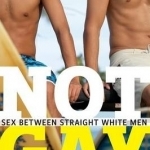
Not Gay: Sex Between Straight White Men
Book
A straight white girl can kiss a girl, like it, and still call herself straight-her boyfriend may...
